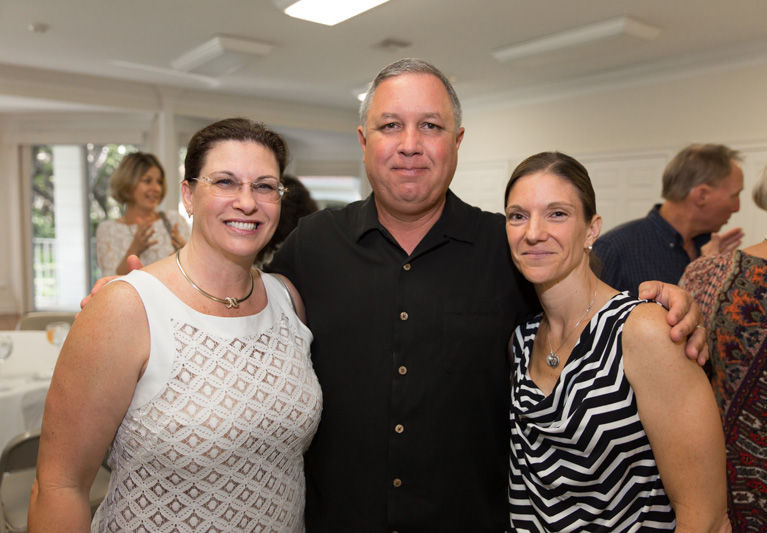
Supporters of the Substance Awareness Center of Indian River County gathered last Friday evening for “An Evening with Friends” at the Indian River Shores Community Center to get an update on efforts to promote a healthier lifestyle through education, prevention, treatment and recovery support.
“We serve about 5,000 kids with our LifeSkills Training Program. That’s our universal prevention program; every middle school gets it,” said SACIRC Executive Director Robin Dapp. “And now we are piloting a program in the elementary schools. The earlier prevention happens, the better the results.”
The evidence-based LifeSkills Training (LST) program launched in middle schools at the start of the 2011-12 school year and the results are encouraging. Taught by health educators, it features 15 weeks of training at the sixth-grade level, with boosters of 10 weeks in seventh grade and five weeks in eighth.
In addition to advice on alcohol, tobacco and drug use, LST promotes self-image, decision-making, conflict resolution, coping with anger, violence and anxiety, and developing social and communication skills. It has been proven effective at reducing bullying, including cyber bullying, delinquency, teenage pregnancy and other negative behaviors.
“LifeSkills is a critical component of our curriculum in middle school,” said Indian River County School Superintendent Mark Rendell, the evening’s featured guest speaker. “It’s one of those things that’s not part of our standard subject matter. But LifeSkills is integral to helping our students be prepared to be successful later on in life.”
He shared some data showing the impact the program has had on the 6,100 students who have participated in LST, including 2500 who participated all three years. Since 2010, there has been a 55 percent decrease in the number of teens smoking cigarettes, a 29 percent decrease in marijuana use, and a 64 percent decrease in the number of middle-school students who are drinking alcohol.
“That’s fantastic. That’s not just research-based; that’s results,” said Rendell.
On the other end of the spectrum, their Recovery Assistance Program provides sober transitional living facilities for eight to 10 women, giving them the tools needed for recovery in a safe, stress-free environment. That program is completely supported by the community, including the two group homes. One of the graduates of the program attended the event, mingling socially with guests who were unaware that she was among them. Dapp said they had purposely decided not to identify her.
“I just felt at this point in time there’s just a little too much misunderstanding about the issue. We hope to change that. Most everyone has been touched by addiction one way or another,” said Dapp. “This disease took her to a place where she lost everything; we didn’t think she would be alive today. And now she’s here, healthy and thriving.”
Clinical Director Carrie Lester spoke a little about that woman’s journey. Prior to her addiction, she had a successful career, marriage and two children. Over the course of 10 years, as alcohol began to take it all away, she would occasionally seek treatment but couldn’t manage the recovery on her own. She developed such serious medical complications that they needed medical clearance to admit her, but once she surrendered to the program she began to heal.
“She got better physically, emotionally, mentally and spiritually,” said Lester. “The investment in her paid off and it paid off in dividends.”
Lester said that when one person recovers it also positively affects families and communities, adding, “Invest in a life because it’s more than one life. We’re all connected by golden thread.”



